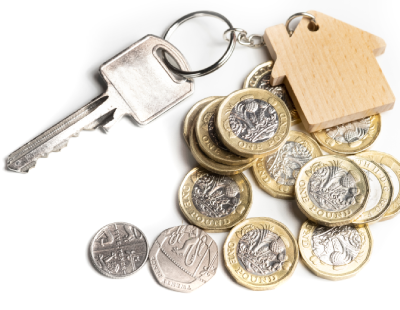A study by MoveStreets, the property portal designed for the mobile generation, has uncovered how much current home sellers are likely to have made when it comes to the price appreciation of their property during the average length of homeownership across regions nationwide.
How the research was carried out
MoveStreets analysed the average length of time a property is owned after purchase across each region of Britain. MoveStreets then looked at how much house prices have risen during this time period based on a homeowner selling up today, adjusting this increase for inflation to find the actual sum made. MoveStreets carried out their research by sourcing the average house price data from Gov.uk and average length of homeownership was sourced from Barclays Mortgages.
Where did property value increase?
Homeowners in Wales typically own their property for the longest period at an average of 22.6 years. A homeowner to have purchased a home back in February 1999 would have done so for £48,455, £85,875 once adjusted for inflation. With the average house price across Wales now £196,216, that’s a 128% surge (£110,341), the largest property value percentage rise of all British regions.
The average length of homeownership in the North West is 20 years and since 2001, the average house price has risen by 97% (£100,029), the second-largest increase of all British regions, closely followed by Yorkshire and the Humber at 89%.
The average length of homeownership in the West Midlands and the North East is slightly longer at 20.2 and 21.3 years respectively. However, house price growth hasn’t been quite as buoyant and after adjusting for inflation, MoveStreets research shows that the average property has grown by 79% in the West Midlands and 78% in the North East.
In the capital, London, the average homeowner will own their home for 19.4 years and had they purchased back in April 2002, they would have seen a rise of 71% once adjusting for inflation. However, while London has only seen the sixth biggest percentage increase of all British regions, it has enjoyed the largest monetary uplift with those looking to sell now some £211,000 better off compared to when they purchased their home.
Where did property value decrease?
Scotland is the only region to have seen downward movement when it comes to property price growth over the lifetime of the average homeowner. With an average length of homeownership at 14.5 years, it would have cost £129,092 to get on the ladder in March 2007. However, once adjusting for inflation, the research by MoveStreets shows this cost is actually £183,168 and with the current average property costing £180,334, Scottish home sellers will have seen a 2% fall in the value of their home.
Adam Kamani, chief executive officer and co-founder of MoveStreets said: “With the festive period now behind us, many homeowners will be getting their house in order with the view to selling in 2022. Over the last year, we’ve seen some explosive rates of house price growth and so those now entering the market are likely to be doing so at a considerably higher sum than the price they originally purchased their home for.”
Kamani continued: “While there are always fears that we may see a repeat of previous house price drops, the cyclical nature of the property market means that there’s a good chance you’ll have seen an increase by the time you do come to sell.”
Kamani concluded: “Just remember, a realistic valuation is key to a quick sale and so avoid any unrealistic expectations if you want to avoid an initial period of little to no interest before inevitably adjusting your asking price expectations further down the line.”
















Join the conversation
Be the first to comment (please use the comment box below)
Please login to comment